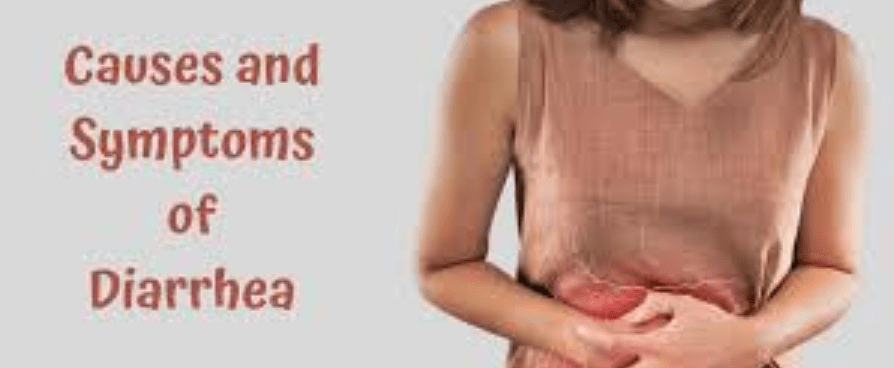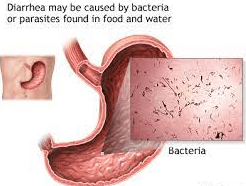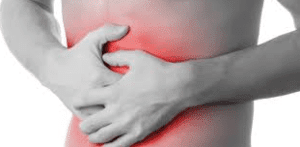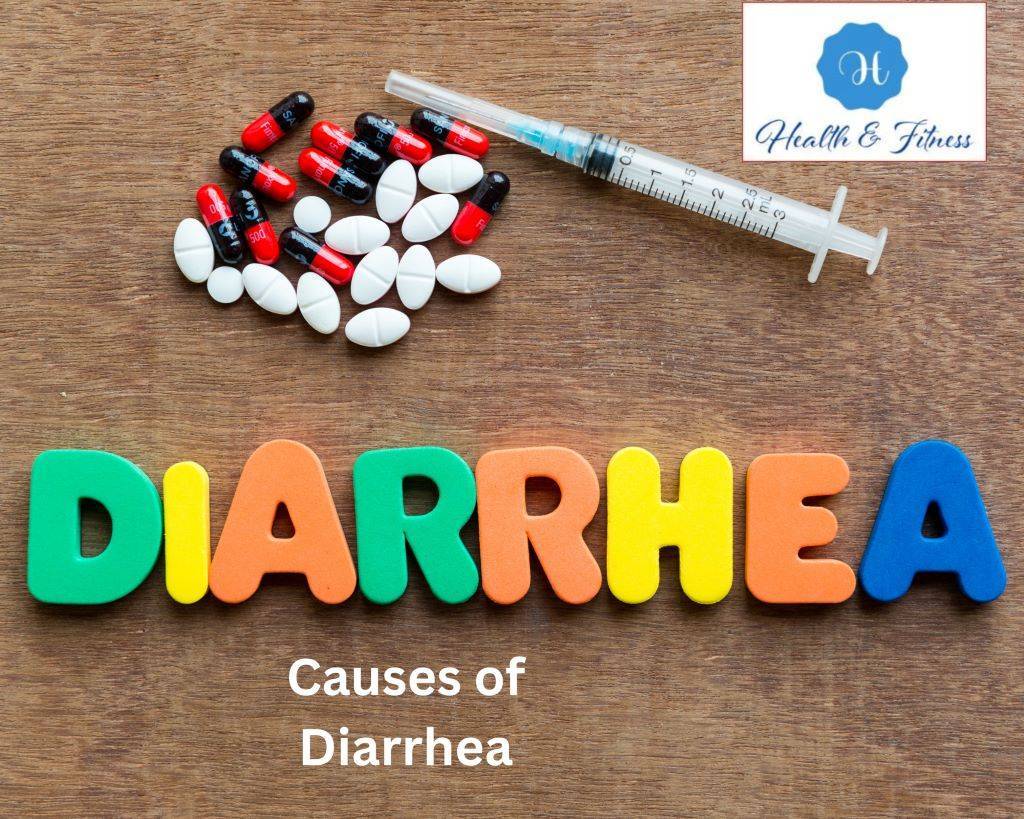Causes of Diarrhea – Unpacking the Science of Diarrhea
Understanding the Causes and Treatment Options – What Causes It and How to Treat It Effectively
Explore the science of diarrhea causes. Uncover the factors behind diarrhea. Get insights into the causes of diarrhea
Diarrhea is a common condition that affects most people at some point. It causes loose, watery stools, abdominal pain, bloating, and nausea. Diarrhea can be mild for some but severe for those with weakened immune systems or medical problems.
Diarrhea management and prevention require knowledge of its science. Infections, food intolerances, medications, and worry can cause diarrhea. It causes dehydration, nutrient deficits, and gut microbiome imbalances.
This blog post discusses diarrhea’s causes, effects, and treatments. We’ll also cover medical treatment and diarrhea prevention. This post will explain the science behind this common disease and how to treat it.

Causes of Diarrhea
Many different factors can contribute to the development of diarrhea. Some of the most common causes include:
- Bacterial, viral, and parasitic infections
Infections from bacteria, viruses, or parasites can cause diarrhea. Infected people, contaminated food or drink, or poor hygiene can spread these infections.
- Food poisoning
Consuming food contaminated with bacteria, viruses, or toxins can cause diarrhea and other symptoms like nausea, vomiting, and fever.
- Medications and medical conditions
Antibiotics and chemotherapy can disrupt gut flora, causing diarrhea. Chronic diarrhea can result from celiac, inflammatory, and irritable bowel diseases.
Dietary factors and food intolerances
Some people may experience diarrhea after consuming certain foods or beverages, particularly those high in fat, fiber, or artificial sweeteners. Food intolerances, such as lactose intolerance, can also cause diarrhea.
- Stress and anxiety
Emotional stress and anxiety can trigger diarrhea in some people. This is because stress can disrupt the normal functioning of the digestive system and cause inflammation in the gut. Identifying the underlying cause of diarrhea is important in determining the most appropriate treatment.

How Diarrhea Affects the Body – Causes of Diarrhea
While diarrhea may seem minor, it can significantly impact the body. Here are some of the ways that diarrhea can affect your health:
- Dehydration and electrolyte imbalances
Fluids and minerals like sodium, potassium, and chloride can be lost from diarrhea. Dehydration is dangerous for infants, young children, and older people. Dehydration causes dry lips, thirst, dizziness, confusion, and rapid heartbeat.
- Effects on the gut microbiome
Gut microbiome bacteria, viruses, and other microorganisms live in the digestive tract. Diarrhea disrupts this delicate balance, causing harmful bacteria to outnumber helpful bacteria. Long-term effects include gut health, immune function, and well-being.
- Nutrient absorption and deficiencies
Diarrhea can interfere with the absorption of nutrients from food, particularly if it is chronic or severe. This can lead to nutrient deficiencies and malnutrition, which can have serious health consequences over time.
- Impact on the immune system
The gut is home to a large portion of the body’s immune system. When diarrhea disrupts the gut microbiome, it can weaken the immune system and make it more vulnerable to infections and other health problems. Managing diarrhea effectively is important to prevent these health complications.

Diarrhea treatment:
The treatment for diarrhea depends on the underlying cause and severity of the condition. Here are some of the most common treatment options:
- Fluids and electrolytes
The primary goal of treatment for diarrhea is to prevent dehydration and restore electrolyte balance. Drinking fluids, such as water, clear broths, or sports drinks containing electrolytes, can help replace lost fluids and nutrients. Avoiding caffeine and alcohol, which can dehydrate the body, is also important.

- Medications
Depending on the cause of the diarrhea, medications may be prescribed to treat the underlying condition.
Antibiotics cure bacteria, while antivirals treat viruses. Anti-diarrheal medications, such as loperamide, can also help control diarrhea but should be used with caution and only under the guidance of a healthcare provider.
- Dietary changes
In some cases, dietary changes may help manage diarrhea. Eating small, frequent meals low in fat and high in complex carbohydrates, such as rice, bananas, and toast, can help ease symptoms. Avoid foods and beverages irritating the digestive tract, such as caffeine, alcohol, spicy foods, and high-fiber foods.
- Probiotics
Probiotics are beneficial bacteria that can help restore balance to the gut microbiome. They can be taken in supplement form or found in certain foods, such as yogurt and fermented vegetables. While more research is needed to determine the effectiveness of probiotics for diarrhea, they may be a helpful adjunct to other treatments.
- Medical intervention
In severe cases of diarrhea, medical intervention may be necessary. This may include hospitalization for intravenous fluids and electrolytes or surgery in rare cases where an underlying medical condition causes diarrhea. It is important to consult with a healthcare provider if you are experiencing persistent or severe diarrhea or have other symptoms like fever, abdominal pain, or bloody stools.

When to Seek Medical Attention
Most cases of diarrhea will resolve independently within a few days and can be effectively managed with home remedies and over-the-counter medications. However, in some cases, diarrhea can be a sign of a more serious condition that requires medical attention. Here are some signs to watch for:
- Diarrhea that is persistent or severe
Medical care should be sought if diarrhea persists over a few days or is accompanied by other symptoms like fever, abdominal discomfort, or bloody stools. This may indicate a bacterial or viral infection requiring antibiotic or antiviral medication treatment.
- Dehydration
Diarrhea can dehydrate children, older adults, and people with weakened immune systems. Dehydration causes excessive thirst, dry lips and throat, dark urine, dizziness, and lightheadedness. If you cannot drink fluids or show dehydration signs, seek medical attention immediately.

- Underlying medical conditions
Inflammatory bowel illness, celiac disease, and irritable bowel syndrome can cause diarrhea. If you have a history of these conditions or are experiencing chronic diarrhea, consult a healthcare provider to determine the cause and appropriate treatment.
- Travel-related diarrhea
If you develop diarrhea while travelling to a foreign country, especially if it is accompanied by fever or other symptoms, you should seek medical attention.
This may be a sign of a serious infection requiring antibiotic treatment.
It is important to take diarrhea seriously and seek medical attention if necessary.
In most cases, however, diarrhea can be effectively managed with home remedies and over-the-counter medications.
By understanding the causes and treatment options for diarrhea, you can take steps to prevent future episodes and maintain optimal digestive health.

Tips for Preventing Future Episodes of Diarrhea
While some cases of diarrhea may be unavoidable, there are steps you can take to reduce your risk of future episodes.
Diarrhea prevention tips:
Practice good hygiene
Viruses and bacteria in food, drink, and surfaces cause diarrhea. Washing your hands often, especially before eating and using the bathroom, can help avoid these germs. Avoid sharing utensils, cups, or towels with others, and clean surfaces regularly with a disinfectant.
Be cautious when travelling
Travelers’ diarrhea is a common problem for people visiting developing countries or areas with poor sanitation. To reduce your risk, drink only bottled water or water boiled or treated with chlorine, and avoid ice cubes or drinks made with tap water. Also, be cautious when eating food from street vendors or restaurants with poor hygiene standards.
Avoid certain foods and beverages
Some foods and beverages can irritate the digestive tract and cause diarrhea. These include high-fat foods, spicy foods, caffeine, alcohol, and artificial sweeteners. If you are prone to diarrhea, it may be helpful to avoid these foods and drinks or limit your consumption.
Take precautions with medications
Certain medications, NSAIDs, and nonsteroidal anti-inflammatory drugs are two examples. (NSAIDs), can increase the risk of diarrhea.
If you are taking these medications, talk to your healthcare provider about ways to reduce your risk of diarrhea, such as taking probiotics or switching to a different medication.
Manage stress
Stress and anxiety can contribute to digestive problems, including diarrhea. Finding ways to manage stress, such as meditation, yoga, or deep breathing exercises, can help reduce your risk of diarrhea.
By following these tips, you can help reduce your risk of future episodes of diarrhea. If you experience diarrhea, staying hydrated and seeking medical attention are important. With proper treatment and prevention, diarrhea can be effectively managed and treated.

Conclusion
Diarrhea is a common digestive problem that affects millions of people each year.
While it is often a temporary inconvenience, diarrhea can cause dehydration and other complications if left untreated. By understanding the causes and treatment options for diarrhea, you can take steps to manage and prevent future episodes.
Remember to practice good hygiene, be cautious when travelling, avoid certain foods and beverages, and take precautions with medications to reduce your risk of diarrhea. If you experience diarrhea, stay hydrated and use over-the-counter medications and home remedies as needed.
If you develop persistent or severe diarrhea, signs of dehydration, or other concerning symptoms, seek medical attention immediately. With proper management and prevention, diarrhea can be effectively treated and prevented. You can enjoy a healthier, happier life by maintaining optimal digestive health.
Reference
Diarrhea,” National Institute of Diabetes and Digestive and Kidney Diseases, accessed March 30, 2023,
https://www.niddk.nih.gov/health-information/digestive-diseases/diarrhea.

Adel Galal is a health and wellness writer with over 30 years of experience studying and writing about health, fitness, nutrition, and healthy living. He is the founder of NextFitLife.com, where he shares practical, evidence-based guidance to support long-term health at any age. Adel’s mission is simple:
to help people make smarter health choices that fit real life, at any age.



